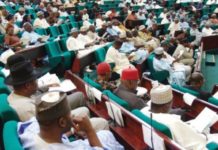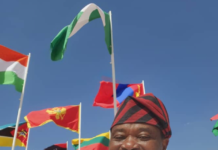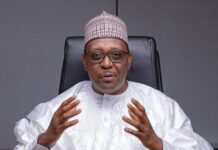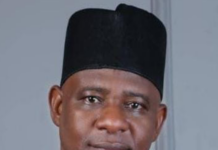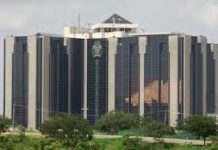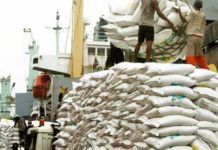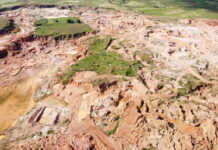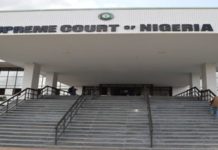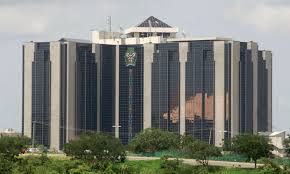
Nigeria’s Forex Reserves To fall, CBN Plans $1.7bn Arrears Payment
Nigeria’s forex exchange reserve will fall in 2022 as the Central Bank of Nigeria (CBN) plans to clear about $1.7bn in FX backlog to foreigners and FX forward contracts, the World Bank has said.
The global bank stated that the nation’s reserves rose to $41.3bn at the end of 2021, which offered it an opportunity for exchange rate adjustment.
In its ‘Nigeria Development Update (June 2022): The Continuing Urgency of Business Unusual,’ the global bank said, “Boosted by higher oil exports, International Monetary Fund’s Special Drawing Rights allocation in August 2021, and a Eurobond issuance in September 2021, gross official reserves rose to $41.3bn (7.4 months of imports) at the end of 2021; offering an opportunity for exchange rate adjustment.
“Nigeria issued additional Eurobonds for $1.25bn in March 2022. However, gross FX reserves are projected to decline during 2022, as the CBN is expected to clear the FX backlog to foreigners (estimated at $1.7bn as of end-October) and FX forward contracts.”
According to the bank, direct investments in Nigeria have been low in 2022 because the nation’s fluctuating exchange rate has been discouraging investors.
It further said foreign direct inflows into the nation were less than one per cent of Gross Domestic Product in 2021 despite higher oil prices which should have driven portfolio investments into the nation. It added that Nigeria’s current account is expected to strengthen in 2022.
The World Bank said the nation’s current account improved in 2021 as a result of its economic recovery from COVID-19 and further improvement is expected in 2022 due to increases in oil prices, remittance inflows, and non-oil exports.
It said, “In 2021, the current account deficit narrowed from 3.8 per cent of GDP in 2020 to 0.4 per cent in 2021, driven by an increase in exports stemming from the rebound in oil prices.
“In contrast, imports remained subdued and declined by 4 per cent year-on-year. This was partly due to FX scarcity, as the private sector reported shortages of FX even for “allowed” imports.8 Remittance flows also recovered to pre-pandemic levels in 2021.
Read Also:
“In 2022, higher oil prices are expected to push the current account to a surplus for the first time since 2018, amounting to a projected 2.8 per cent of GDP. Direct investments have been persistently low in 2022, as exchange rate management issues deter investors. Net foreign direct investment inflows in 2021 remained at less than 1 per cent of GDP, despite higher oil prices which have historically driven higher portfolio investment flows into the country.”
The Washington-based bank said even though the CBN was making progress in harmonising the two main exchange rates, its reform remained incomplete, as the persistence of multiple rates continued to discourage private investment.
It added that rising interest rates in the United States and other advanced economies would likely lead to an outflow of net portfolio investments from the nation as investors move their investments to certain environments.
It further said that pre-election is likely to add to the hesitance of portfolio investors, keeping net inflows low.
According to it, exchange rate policy clarity and transparency in the Nigerian government’s management are necessary to attract more significant capital inflows, including FDI into the nation.
It added that the CBN continued to supply FX to at least four windows, sometimes at varying rates: the I&E window; the secondary market intervention sales retail window; the small and medium-sized enterprises window; and the window for invisibles.
Read Also: Nigeria’s Foreign Exchange Reserves Now Below $39bn – CBN
Commenting on the development, a professor of Economics and Public Policy at the University of Uyo, Prof. Akpan Ekpo, said, “The backlog is because we don’t have the FX. The demand for FX outstrips the supply, don’t forget that the FX is not our money, our naira is not convertible.
“We must sell oil to get forex, we have to get oil companies to pay FX. Where there is a shortage of supply, you can’t meet the demand. The only way is for us to have a strong dynamic manufacturing sector and export non-oil goods to earn foreign exchange for the economy.
“Now, that it is political season the FX issue is going to be worse as people are buying FX to keep for political campaigns. If we don’t pay, we have to reschedule, and I hope we don’t get to the point where we get to a currency crisis that is a point where we cannot honour our letters of credit.”




